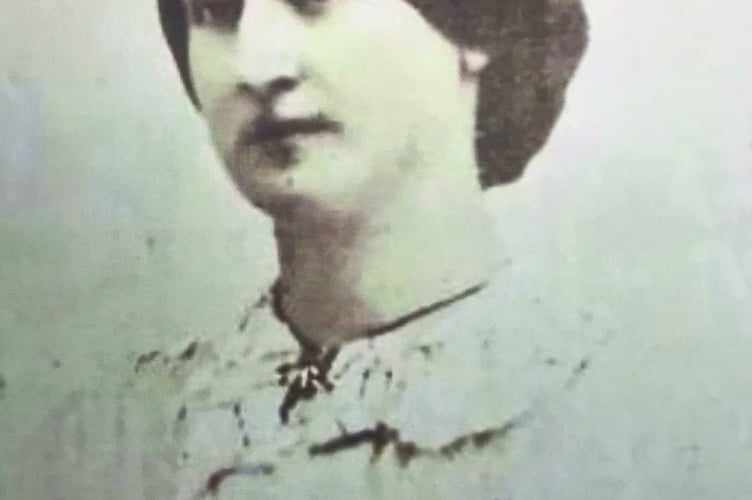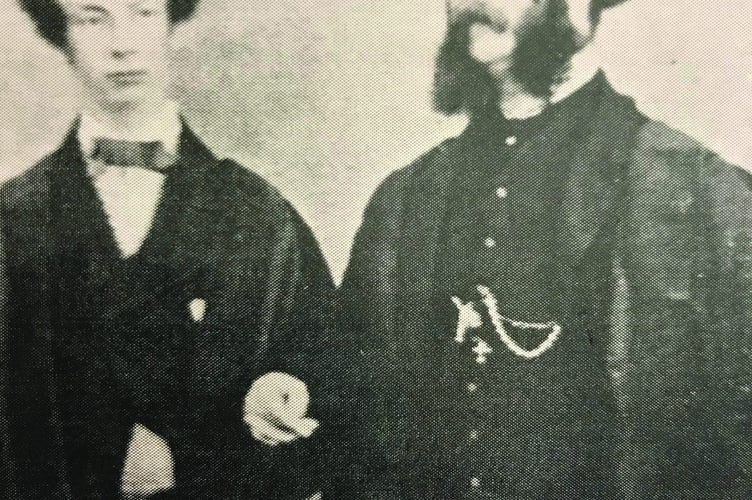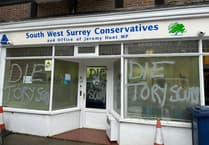THE undoubtedly strange marriage of Victorian squire, barrister, poet and socialite Arthur Munby to a girl of lowly status is the focus of Peeps into the Past this week.
The local link is that Munby leased Wheeler’s Farm, a house in Pyrford which he called Buttercup Farm, for almost 40 years. Although he often resided in London, wealthy Munby first occupied the house in Pyrford in 1878 as something of a country retreat.
In a story about Munby on the Peeps page in October last year, it was noted that in his journals he wrote about meeting working-class women, particularly those who performed hard physical tasks. He sketched them and collected hundreds of photos of them.
Much has been written about him, including his marriage in 1873 to Hannah Cullwick (1833-1909), who was born into poverty in Shropshire. She met the man who would become the love of her life on her 21st birthday in London. During their marriage, Munby attempted to train her to be able to take her place in society as his wife and his lady. Evidently, it was never a role that appealed to her.
Much more about her has now been written in a new book, Our Hannah, by a descendant, John Cullwick.

He says: “Their mutual love was unreserved and pure for nearly 56 years, and they were married for just over 36 of those years. Much of Hannah’s life was lived apart from her husband, and their communication was largely through letters. Hannah has intrigued historians, sociologists and psychologists for over 100 years.”
John’s book recounts in much detail Munby and Hannah’s successful and committed relationship, which he says thrived despite the odds of the Victorian era being stacked against them and the discrepancies in their respective social standing.
It also reveals how Munby’s voyeuristic and academic interest in the period’s hard-working women quickly grew into a committed, if not alternative, relationship and marriage.
This is the first time a descendant of Hannah’s family has written about her. John includes new and significant information, including the reasons behind an explosive incident one October evening in 1877 at Munby’s London home that resulted in Hannah being diagnosed with mental illness by a leading Harley Street doctor and sent from the marital home to recover.
At the end of October 1877, Hannah violently attacked Munby. John is keen to point out that he is sure that nobody in 70 years of research since Munby’s writings, known as the Munby Boxes, were opened at Trinity College, Cambridge, in 1950, has known why Hannah attacked her husband.
John says: “I found the reason by sheer fluke and have devoted two chapters to this distressing incident in my book.”
He also believes that Hannah and Munby liked Surrey a lot, when they did spent time some together at Pyrford, adding: “I think Arthur probably wanted Hannah to live there after their 1873 marriage, and Hannah’s sister Ellen became his housekeeper in London.
“However, Hannah preferred to live at his main residence in London, Fig Tree Court in The Temple. Yet Hannah’s life has been written about and discussed more than any other of these millions of our ancestors who worked in service.

“Books and articles have been written, a Channel 4 documentary was devoted to her, a short film by the prize-winning American director Kim Wood has been released; and Hannah’s life has been discussed in the most intellectual of circles for the last 40 years or more.
“Why? Because her ordinary life was in so many ways extraordinary. A tall, handsome and widely admired B-list celebrity Arthur Munby certainly was. Their 55-year relationship was a mésalliance – there was a huge and uncomfortable gap in social status between them.
“The relationship had to be kept a secret from Munby’s employers [the Ecclesiastical Commissioners of the Church of England based in Whitehall], and also kept from Munby’s family in his native Yorkshire and his many cousins in the Hyde Park area of London.
“Therefore ‘Our Hannah’ and Arthur Munby lived apart for almost all of those 55 years plus, and yet remained totally faithful and wrote a copious amount to each other in their diaries, letters and postcards.”
Our Hannah has been independently published and is available in softback for £20. It is available to buy via the website of Lewis Sinclair Associates at www.lewissinclairassociates.cymru.
(red blob) IF you have some memories or old pictures relating to the Woking area and its people, call David Rose, on 01483 838960, or drop a line to the News & Mail.
DAVID Rose is a local historian and writer who specialises in what he calls ‘the history within living memory’ of people, places and events in the west Surrey area covering towns such as Woking and Guildford. He collects old photos and memorabilia relating to the area and the subject, and regularly gives illustrated local history talks to groups and societies. For enquiries and bookings, please phone or email him at [email protected].




